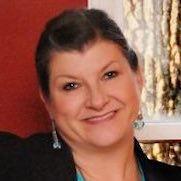3 minutes
To advance their careers, women must advocate for themselves before, during and after the hiring process—even if they think they only tick most of the boxes.
There is a commonly cited statistic: “Men apply for a job when they meet 60% of the qualifications, but women apply only if they meet 100% of the criteria.” A possible conclusion you might draw from this stat is that men feel more confident in their abilities. But as noted by Tara Sophia Mohr, author of Playing Big: Find Your Voice, Your Mission, Your Message, writing for the Harvard Business Review, the answers are not always clear-cut.
From her study of 1,000 men and women, Mohr surmises:
“People who weren’t applying believed they needed the qualifications not to do the job well, but to be hired in the first place. They thought that the required qualifications were … well, required qualifications. …They didn’t see the hiring process as one where advocacy, relationships, or a creative approach to framing one’s expertise could overcome not having the skills and experiences outlined in the job qualifications.”
Compare this to CUES member Deonne Christensen’s journey to $687 million Mazuma Credit Union six years ago. Christensen, who is now president/CEO of the Kansas City, Kansas, credit union didn’t try to sell that she’d work around the clock or do more than any other candidate.
“I did the opposite,” she recalls. “While I would do everything in my power for the COO position, I stated that I have a family, which now includes four children, and they always come first. It was a statement of who I was. I wasn’t going to sacrifice home [life] and stressed that, as a woman, I could do both.”

Later, in 2018, Christensen was one of the hundreds who applied for the CEO position at Mazuma CU. And while she couldn’t check all the boxes for the position, she received the encouragement she needed to continue through the selection process until she was promoted to CEO in 2019.
Christensen stresses that we must all empower each other. “Men, identify women you see as having potential and offer your help; women, ask a man you trust to be your mentor. When women can find mentors, it builds self-esteem and confidence. For me, it was actually my (male) mentors and peers that encouraged me at every stage and enabled me to get where I am today.”
Don’t Compromise, Don’t Apologize
But it is up to you to put yourself out there. “Be your genuine self,” concludes Christensen. “Our business world is hungry for the empathy women possess; it creates stronger, more unified teams. Don’t be afraid to ask for what you’re worth when negotiating salary, even if you need to sacrifice time away from the job for family. Women seem to feel they’re not worth the salary if they sacrifice more for their families. It’s okay not to work 80 hours a week; it is okay to leave the office at five. Treat yourself well and find ways to replenish your buckets. Others can’t replenish them for you.” Christensen works on this by meditating twice daily.
There are those who are stuck in old mindsets about women and may prove to be obstacles to advancement, and Christensen notes that some of these stereotypes perpetuate. Often, “these individuals are a product of their environment, and it’s not necessarily their fault,” she says. “But remember, we’re in this together, and change can only happen collectively.” cues icon
Stephanie Schwenn Sebring established and managed the marketing departments for three credit unions and served in mentorship roles before launching her business. As owner of Fab Prose & Professional Writing, she assists credit unions, industry suppliers and any company wanting great content and a clear brand voice. Follow her on Twitter @fabprose.






